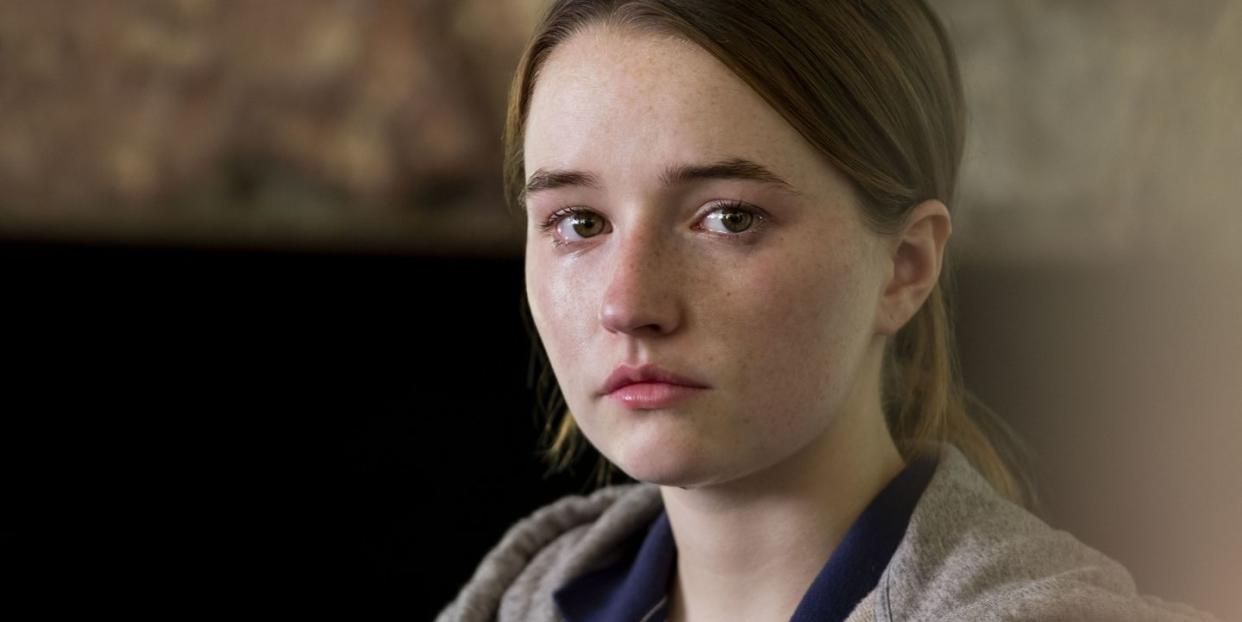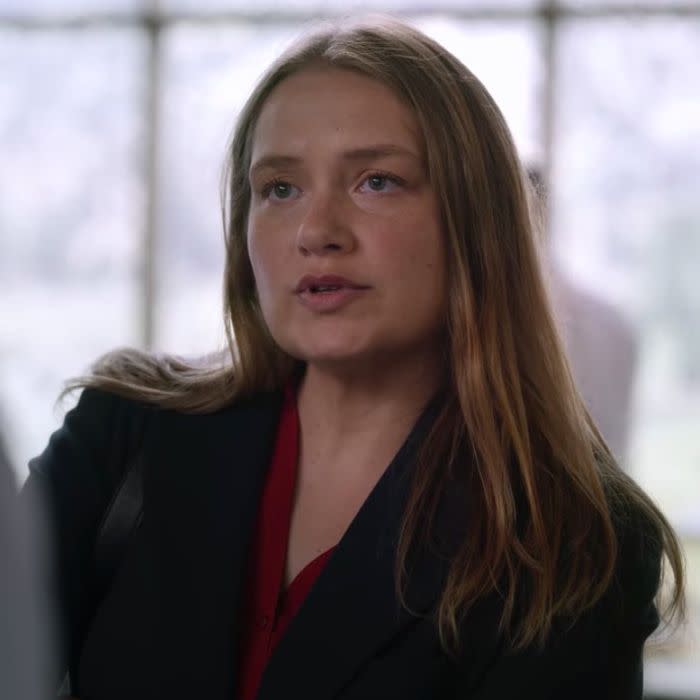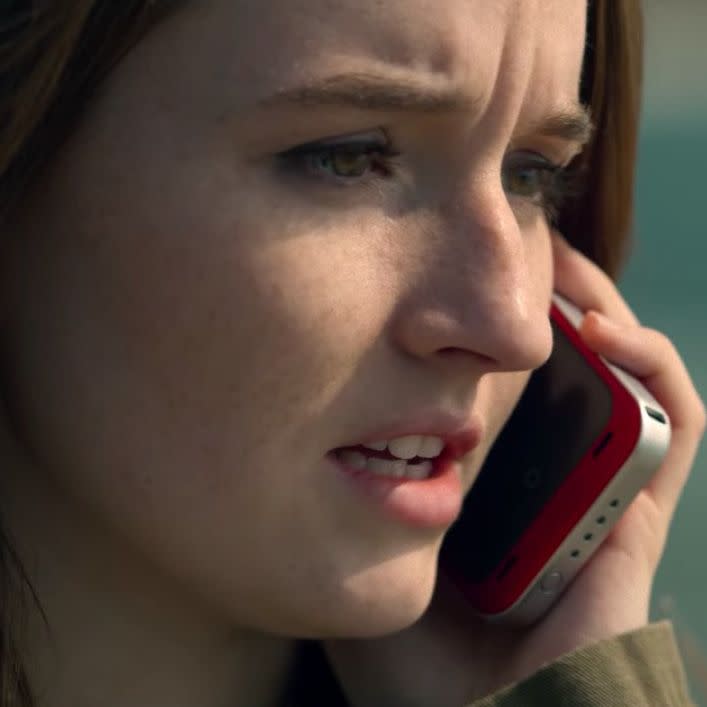Unbelievable on Netflix: Marie Adler's true story and the real detectives behind the investigation

The following article contains discussion of sexual misconduct that some readers may find upsetting.
Note: This article contains spoilers for Unbelievable.
Unbelievable arrived to Netflix on Friday (September 13), bringing the story of teenager Marie Adler (played by Kaitlyn Dever) to screen. She was raped at the age of 18 but, instead of being treated as a victim of a violent and traumatic crime, she faced charges herself which could have been punishable with up to a year in jail.
The eight-part limited series dramatises this true story as well as the wider case that surrounded it, and is based on the award-winning article from The Marshall Project (which shines a light on the criminal justice system in the US) and Pro Publica (a nonprofit newsroom that investigates abuses of power). The piece, which won a Pulitzer Prize and was published in December 2015, was entitled An Unbelievable Story of Rape and took a year to compile.
The case also formed the basis for a book, A False Report: A True Story of Rape in America published in 2018, and was explored in an episode of the This American Life podcast.
Marie Adler originally told authorities that a man had broken into her Washington apartment, tied her up, gagged her and then sexually assaulted her. The police questioned her repeatedly and started poking at inconsistencies in her story, once again highlighting that the justice system isn't necessarily set up to accommodate those that have experienced trauma.

Related: Which streaming is best for you: Netflix, Disney+, Amazon Prime, Apple TV or NOW TV?
Sergeant Jeffrey Mason and Jerry Rittgarn were the real-life investigators from the Lynnwood Police Department who took on Marie's case. Mason was put in the lead position, but at that time he had only experience of working one or two rape cases.
According to The Marshall Project/Pro Publica's investigative article, there were protocols and guidelines available to the police that described some of the possible challenges of investigating rape, but the department did not have a dedicated sex-crimes unit.
It wasn't just the police who seemed to doubt Marie's story; her foster parents also questioned her behaviour in the aftermath of the attack.
In the article, Peggy, one of Marie's foster mothers, described her initial reaction after arriving to the apartment on the morning of the attack. "It was so strange because I sat down next to her, and she was telling me what happened, and I got this — I'm a big Law & Order fan, and I just got this really weird feeling," she said. "It was like, I felt like she was telling me the script of a Law & Order story."
Also mentioning Marie's demeanour, she added: "She seemed so detached and removed emotionally." Peggy called the police to share these concerns because, she said, she wanted to be a "good citizen" and make sure that resources weren't being wrongfully used. This is something she later regretted.
Ultimately Marie ended up retracting her statement, saying she'd made it all up and admitting that it might have been a dream. She was then charged with filing a false report.
Her lawyer, a public defender, was the only person to accompany her to the courtroom. A plea deal was struck: Marie agreed to forced counselling, paying a $500 fine and was placed on supervised probation.
Marie's experience was the latest in a string of past abuses. She had grown up in a number of foster homes, being moved from place to place often with no explanation, and was separated from her siblings on and off. According to the article, Marie had previously experienced both sexual and physical abuse in her early life.
As a result of her false-reporting conviction, Marie lost a lot of friends. If it hadn't been for the work of two female detectives, working across the continent, the truth may have never surfaced.

Detective Stacy Galbraith (the basis for Unbelievable's Karen Duvall, played by Merritt Wever) was the lead detective investigating another rape, this time in Colorado. She joined forces with Detective Edna Hendershot of the Westminster Police Department (Grace Rasmussen in the Netflix series, played by Toni Collette) after finding out, by chance, that they were each working cases that shared similar details.
By this point, Hendershot had investigated more than 100 rapes in the space of her career.
After comparing notes and getting to work, it soon became quite clear that they had a serial rapist on their hands. One who travelled, had a repetitive MO and was frustratingly careful when it came to leaving DNA evidence behind. The detectives did, however, manage to recover some 'touch DNA' from a few of the crime scenes.

After a lengthy police investigation, Galbraith and Hendershot led the arrest of their suspect. Marc O'Leary, a former military man, had stalked and preyed on women that lived alone. He would break into his victim's homes at night with his 'rape kit' and assault them repeatedly for hours. During a 2016 edition of CBS' 48 Hours, FBI Special Agent Jonny Grusing said that he was surprised "to see a suspect who was so cunning in not getting caught."
But O'Leary was caught in 2011. He entered a plea of guilty to 28 counts of rape and other related charges, and was sentenced to 327.5 years in prison – the maximum that could be passed by law.
Police found evidence that confirmed their victim's descriptions as well as findings from their own detective work, which they seized from the home that O'Leary had shared with his brother. Among those items was a hard drive full of photographs that he had taken of his victims. Many of them they recognised, but one they did not – Marie Adler. This was definitive proof that she had been telling the truth about her attack from the start.
As a result of this discovery, Lynnwood's Police Chief requested both an internal and external review of how his department had handled the investigation. Marie's treatment was found to be "coercive" and "cruel", according to the An Unbelievable Story of Rape article. During an interview with its lead Sgt Mason, he said: "It wasn’t her job to try to convince me. In hindsight, it was my job to get to the bottom of it – and I didn't."
Detective Galbraith also found that O'Leary was linked to another unsolved case, finding the victim's name in an encrypted file on his computer. It's possible that this could have been a result of finally getting into the hard drive mentioned in the final episode of Netflix's Unbelievable.
The final scenes of the series show a touching phone call between Duvall and Marie, where Marie offers her gratitude for everything the detectives did for her in finally getting to the truth.

"More than him getting locked up, more than the money I got, it was hearing that about you guys that changed things completely," Marie's character told Duvall in the series. "I wake up now and I can imagine good things happening."
It's not entirely clear whether this particular exchange actually happened in real life, as it played out on screen, but it's a stark reminder just how much of an impact we can have when we believe someone's truth.
And, what can happen if we don't.
Unbelievable is available to stream on Netflix now. You can read the full award-winning article An Unbelievable Story of Rape here.
Rape Crisis England and Wales works towards the elimination of all forms of sexual violence and sexual misconduct. If you’ve been affected by the issues raised in this story, you can access more information on their website or by calling the National Rape Crisis Helpline on 0808 802 9999. Rape Crisis Scotland’s helpline number is 08088 01 03 02.
Readers in the US are encouraged to contact RAINN, or the National Sexual Assault Hotline on 800-656-4673.
Want up-to-the-minute entertainment news and features? Just hit 'Like' on our Digital Spy Facebook page and 'Follow' on our @digitalspy Instagram and Twitter account.
You Might Also Like

